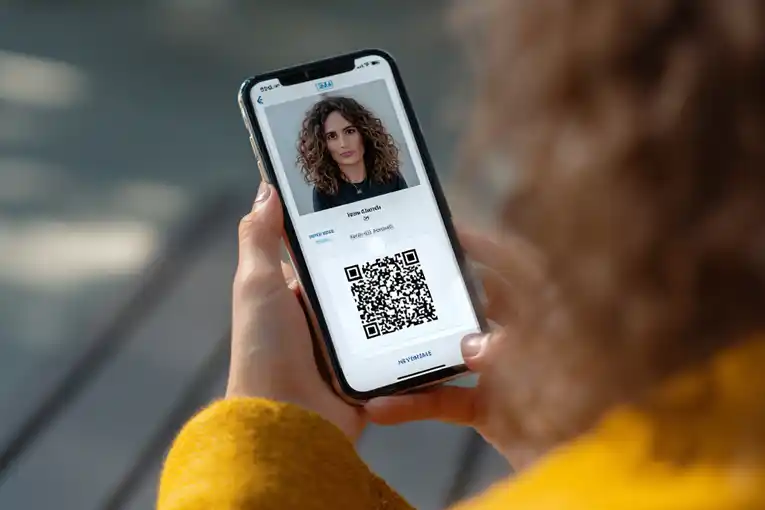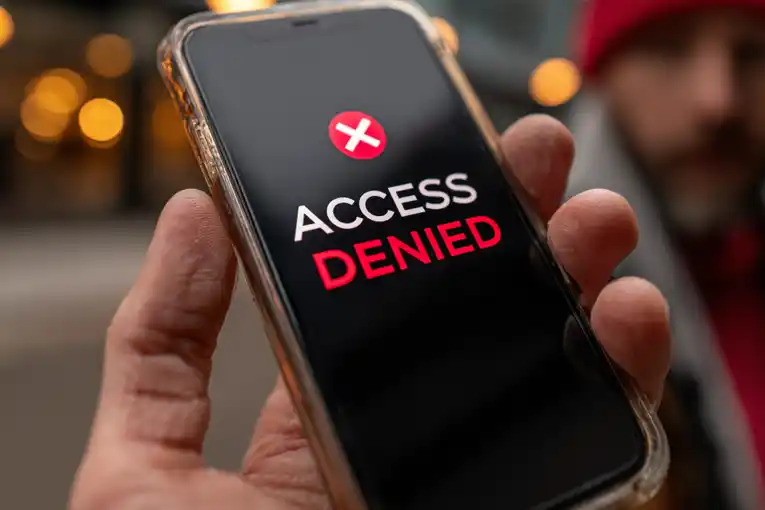Cyber Security News Aggregator
.Cyber Tzar
provide acyber security risk management
platform; including automated penetration tests and risk assesments culminating in a "cyber risk score" out of 1,000, just like a credit score.BritCard – Pros and Cons of the UK Digital ID
published on 2025-09-27 07:00:33 UTC by Simon BurgeContent:
The UK digital ID is becoming a hot topic, with the British government exploring new systems that could change how citizens prove who they are online and in everyday life.
At the centre of this debate is the idea of a proposed BritCard, a digital identity card for UK residents.
In simple terms, BritCard would be a digital identity system that allows people to verify their identity securely, without relying on paper documents, to access services, confirm their age, or prove who they are online.
Supporters see it as a step towards convenience and security, while critics warn it could erode privacy and civil liberties.
Our article explains what digital identity is, how the UK’s Digital Identity Trust Framework works, why the government is considering BritCard, and the key arguments for and against its introduction.
What is a Digital Identity?

A digital identity is an electronic record that proves who you are.
Instead of producing a passport, driving licence or bank statement, a digital identity lets you confirm your identity online or in person using a secure, government recognised system.
Digital identity systems can store attributes such as your name, date of birth, driving licence number, and even your qualifications.
They can then be used to prove eligibility, confirm age, or log into official services without showing physical documents every time.
Many countries already use some form of digital ID.
Estonia for example, is often cited as the gold standard, where digital IDs are used for voting, healthcare, banking and even signing contracts.
The UK, however, has historically resisted introducing a compulsory identity card, which makes the BritCard debate particularly controversial.
What is the Digital Identity Trust Framework?
The UK’s proposed system would operate under the Digital Identity and Attributes Trust Framework, overseen by the Office for Digital Identities and Attributes (OfDIA).
This framework sets the rules for how digital identity providers must operate.
Rather than issuing a single, centralised government card, it creates a network of trusted providers that can verify people’s identities in a standardised, secure way.
The framework is designed to ensure:
- Citizens remain in control of their stored data.
- Identity information can only be shared with permission.
- Private companies and public bodies must meet strict standards if they want to provide or use digital identity services.
So, while BritCard is often described as a national ID, the framework suggests the UK approach will be more decentralised and voluntary than schemes seen elsewhere.
Why Does the UK Government Want to Introduce BritCard?

The government has made clear that its goal is to make it easier and safer for people to prove who they are, particularly in a digital-first world.
From opening a bank account to accessing healthcare or verifying age when buying alcohol, the number of times citizens need to prove their identity is increasing.
Fraud, identity theft and unauthorised access to services are also growing challenges.
The introduction of BritCard, or a similar digital identity scheme, is seen as a way to:
- Improve security for both citizens and businesses.
- Modernise government services, including GOV.UK One Login and the GOV.UK Wallet, which already allow digital access to official documents.
- Reduce the reliance on physical paperwork, making processes quicker and cheaper.
The idea is not entirely new.
Previous attempts at national ID cards in the UK by Tony Blair’s Labour government were scrapped after criticism, but the digital landscape has changed dramatically since then, reigniting the discussion.
Arguments in Favour of a UK Digital ID

Proponents argue that BritCard could bring significant benefits across society. Here are the main points in favour:
Security and Scalability
Digital ID systems use encryption and verification standards that make them harder to forge than paper documents.
They also allow for quicker checks at scale, making them attractive for large institutions like banks and government agencies.
Convenience
Instead of juggling multiple forms of ID, citizens could use a single, secure digital identity across a wide range of services.
This reduces bureaucracy and saves time.
Age Verification
A BritCard could make it easier to prove age in shops, online gaming, or social media.
Instead of handing over a passport, a simple digital confirmation could suffice, protecting privacy while ensuring compliance.
Reduce Fraud
Fraudulent benefit claims, identity theft and money laundering are persistent problems.
A verified digital identity could cut down on these crimes by making impersonation far harder.
Access to Public Services
From healthcare to education, having a secure digital ID could streamline access to government services.
It could also help the millions of people who struggle with lost or outdated documents.
Combat Illegal Immigration
A digital ID could help employers and landlords verify immigration status more accurately, preventing illegal working and exploitation while ensuring fairness in the job and housing markets.
Arguments Against a UK Digital ID

While the benefits are compelling, opponents raise equally serious concerns.
Civil liberties groups such as Big Brother Watch, campaigners and members of the public warn that BritCard could open the door to unintended consequences.
Government Overreach
Critics fear that once introduced, a digital ID system could expand beyond its original scope.
What starts as voluntary could, in time, become compulsory – a classic bait and switch tactic.
Privacy and Security Concerns
Even with safeguards, storing sensitive identity data creates risks.
Who controls this information? Who gets access? And can citizens truly guarantee their personal details won’t be misused?
Target for Hackers and Foreign Adversaries
A centralised or widespread ID system becomes a prime target for cyberattacks.
If breached, the cybersecurity fallout could affect millions of citizens at once.
“Papers Please” Society
Civil liberties advocates argue that a digital ID risks turning everyday interactions into ID checks.
Critics fear a society where proving your identity becomes routine, eroding freedoms.
Restrictions on Freedoms
Opponents warn that tying essential services to digital ID could exclude those who refuse to participate or lack access to technology, effectively creating a “digital prison” for the digitally excluded.
Social Credit System
One of the biggest fears is “scope creep”, that once established, a UK digital ID could evolve into a broader surveillance tool, similar to China’s controversial social credit system.
Although the UK government has ruled this out, strong scepticism remains.
Will the BritCard UK Digital ID Be Mandatory?
At present, the UK government insists that any digital identity system will be voluntary, not compulsory.
Citizens will still be able to use traditional documents like passports and driving licences if they prefer.
The focus is on choice and convenience rather than enforcement.
However, opponents remain cautious, arguing that voluntary schemes often become de facto mandatory over time, as businesses and public services increasingly demand them.
The future of BritCard will depend heavily on public trust.
If people believe their privacy is protected and the benefits are clear, uptake may grow naturally.
But without strong safeguards, resistance is likely to remain.
Key Takeaways
The BritCard debate touches on one of the most sensitive questions in modern society: how do we balance security and convenience with privacy and freedom?
Digital identity could transform how citizens access services, reduce fraud, and make life simpler in countless ways.
Yet it also raises profound concerns about surveillance, government overreach, and the erosion of personal freedoms.
For now, BritCard remains a proposal rather than a reality.
Its success will depend not just on technology, but on public trust, transparent governance, and clear legal protections.
The UK may not yet have a mandatory digital ID system, but the conversation is well under way, and it is one that affects every British citizen.
https://securityjournaluk.com/britcard-uk-digital-id/
Published: 2025 09 27 07:00:33
Received: 2025 09 27 07:21:16
Feed: Security Journal UK
Source: Security Journal UK
Category: Security
Topic: Security
Views: 14
